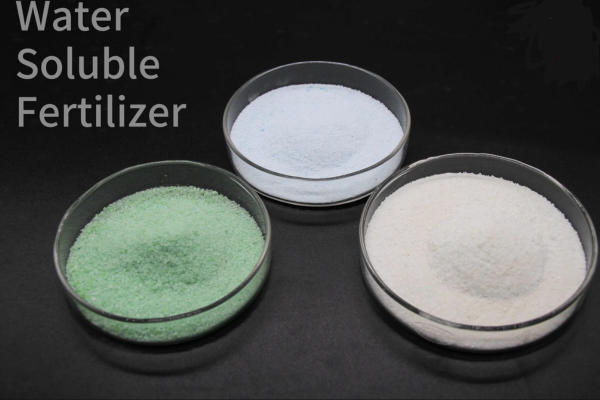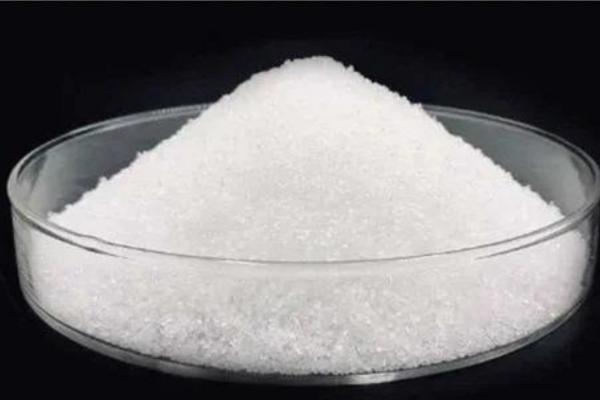An organic water soluble fertilizer is a compound that can be dissolved in water and is derived from natural organic materials, such as plant extracts, animal residues, or mined minerals. Unlike synthetic fertilizers, these organic formulations are often richer in nutrients, are more environmentally friendly, and enhance soil health over time. Due to their water-soluble nature, they allow for quick absorption by plants, ensuring that essential nutrients are readily available when needed.
Opting for an organic water soluble fertilizer provides multiple benefits over conventional, chemical-based options. Firstly, these organic solutions contribute to a more sustainable agricultural practice, reducing dependency on non-renewable resources. They also minimize the risk of over-fertilization, a common issue with traditional fertilizers, which can lead to nutrient runoff and subsequent environmental damage. Additionally, these fertilizers enhance the microbial activity in the soil, thereby improving soil structure and promoting healthier plant growth. A notable example includes products from SHANDONG LOYAL CHEMICAL CO.,LTD., known for their efficacy and environmental benefits.

The Importance of Nutrient Uptake for Crops
Overview of Nutrient Uptake in Plants
Nutrient uptake refers to the process by which plants absorb essential elements from the soil, which are crucial for their growth and development. Effective nutrient uptake not only influences the health of the plants but also their ability to resist diseases, withstand environmental stresses, and achieve optimal growth. The roots play a critical role in this process, absorbing water and dissolved nutrients, such as nitrogen, phosphorus, and potassium, which are often provided through organic water soluble fertilizers.
Role of Effective Fertilization in Crop Yield and Health
Effective fertilization, particularly using organic water soluble fertilizers, directly impacts crop yield and overall plant health. These fertilizers ensure that nutrients are available in a form that plants can immediately use, which is especially important during critical growth stages when nutrient demand is high. The rapid availability of these nutrients from organic water soluble fertilizers helps in maximizing the absorption efficiency, leading to more robust growth and enhanced productivity.
Moreover, organic formulations support the soil’s natural nutrient cycle, contributing not only to the immediate nutrient needs of the crop but also to the long-term fertility of the soil. By improving soil structure and increasing organic matter, these fertilizers create a healthier environment for root systems, further enhancing nutrient uptake.
In essence, the choice of fertilizer and its application method significantly influence the ability of crops to absorb nutrients effectively, ultimately determining the success of agricultural endeavors.
Types of Organic Water Soluble Fertilizers
Common Ingredients in Organic Water Soluble Fertilizers
Organic water soluble fertilizers typically consist of a variety of natural ingredients that are rich in essential nutrients. Common components include seaweed extracts, fish emulsions, bone meal, and blood meal, all of which provide a balanced mix of nitrogen, phosphorus, potassium, and other micro-nutrients in a form that plants can easily absorb. These ingredients not only feed the plants but also enrich the soil with organic matter that supports microbial life essential for a healthy soil ecosystem.
Comparative Analysis of Different Brands and Formulations
The market offers a diverse range of organic water soluble fertilizers, each tailored for specific crop types and growing conditions. For instance, products from SHANDONG LOYAL CHEMICAL CO.,LTD. are renowned for their high efficiency and suitability across various agricultural settings. Comparing these with other brands, farmers should consider several factors such as nutrient ratio, solubility rate, and ecological impact.
For example, a seaweed-based fertilizer might be more suitable for leafy vegetables due to its high potassium content, which promotes vigorous leaf growth. On the other hand, a blood meal-based fertilizer, rich in nitrogen, could be more appropriate for growing leguminous crops that demand high nitrogen levels.
Understanding these differences is crucial for maximizing crop yield and sustainability, ensuring that each plant receives the optimal nutrient blend for its specific needs.
How to Choose the Right Organic Water Soluble Fertilizer
Factors to Consider Based on Crop Type and Soil Condition
Choosing the right organic water soluble fertilizer involves understanding the specific needs of your crops as well as the existing conditions of your soil. Different crops require varying amounts of nutrients at different stages of their growth cycle. For instance, leafy vegetables may need fertilizers with higher nitrogen content to promote foliage development, whereas fruiting plants might benefit more from higher phosphorus levels to enhance fruit production.
Soil testing is a crucial step before applying any fertilizer. It helps determine the soil’s current nutrient content, pH level, and organic matter status, which can significantly influence the effectiveness of a fertilizer. A soil test will guide you in selecting a fertilizer with a nutrient profile that matches the deficiencies identified in the soil, ensuring that you are not over or under-supplying any nutrients.
Tips on Reading and Understanding Fertilizer Labels
When selecting an organic water soluble fertilizer, it’s essential to read and understand the label carefully. Here are some tips:
- N-P-K Ratio: This indicates the percentage of nitrogen (N), phosphorus (P), and potassium (K) in the fertilizer. Choose a ratio that fits the specific growth needs of your crop.
- Ingredients: Look for information on the source of nutrients, which can affect how quickly they are released and absorbed by the plant.
- Application guidelines: Pay attention to recommended application rates and timing to avoid damaging plants and ensure optimal nutrient uptake.
- Certifications: Check for organic certifications to ensure the product meets stringent organic standards and is free from prohibited synthetic chemicals.
By considering these factors and carefully selecting a suitable organic water soluble fertilizer, farmers can significantly improve the health and yield of their crops, contributing to more sustainable and productive farming practices.
Application Methods for Organic Water Soluble Fertilizer
Best Practices for Mixing and Applying Fertilizer
When using organic water soluble fertilizer, it is essential to follow best practices for mixing and application to ensure the nutrients are effectively absorbed by the plants and to prevent waste. Here are key steps to consider:
- Dilution: Always dilute the fertilizer according to the manufacturer’s instructions. Over-concentration can harm the plants, while under-concentration may not deliver the desired nutrients effectively.
- Equipment: Use appropriate equipment such as a sprayer or a drip irrigation system to apply the solution. These methods ensure even distribution and reduce nutrient loss compared to traditional broadcasting techniques.
- Application time: Apply during the cooler parts of the day, such as early morning or late afternoon, to minimize evaporation and enhance nutrient uptake.
Timing and Frequency of Application for Optimal Results
The timing and frequency of applying organic water soluble fertilizer are critical for maximizing plant health and productivity:
- Growth stages: Apply during key growth stages such as seeding, vegetative growth, and flowering. Each stage may require different nutrient types and concentrations.
- Soil testing: Regular soil tests can help adjust the fertilization schedule based on the current nutrient levels in the soil, ensuring that plants receive what they need when they need it.
- Weather conditions: Adjust application schedules based on weather conditions. For example, additional applications may be necessary after heavy rainfall, which can leach nutrients from the soil.
By adhering to these application methods and timings, farmers can optimize the effectiveness of their organic water soluble fertilizers, leading to better crop yields and a more sustainable agricultural practice.

Monitoring and Adjusting Fertilizer Use
Tools and Techniques for Measuring Soil Nutrient Levels
Effective management of organic water soluble fertilizer application requires regular monitoring of soil nutrient levels. This can be achieved using a variety of tools and techniques:
- Soil testing kits: These are available for at-home or laboratory use and can provide information on pH, nitrogen, phosphorus, potassium, and other essential nutrients.
- Digital sensors: Advanced technologies like digital sensors can continuously monitor soil conditions and provide real-time data, allowing for more precise fertilizer management.
- Visual inspections: Observing plant health and growth patterns can also indicate nutrient deficiencies or excesses, guiding further soil testing and adjustments in fertilizer application.
Adjusting Fertilization Strategies Based on Feedback and Results
Adjusting fertilization strategies is crucial to maintain optimal soil health and crop productivity:
- Feedback from soil and plant tests: Use the results from soil tests and plant health assessments to tailor fertilizer types, amounts, and application schedules to the specific needs of your crops.
- Seasonal adjustments: Consider the changing needs of plants with the seasons. For instance, nutrient requirements may increase during the growth season and decrease post-harvest.
- Environmental considerations: Take into account environmental factors such as rainfall, temperature, and potential runoff issues. Adjust fertilizer applications to mitigate environmental impact while still supporting robust crop growth.
By closely monitoring soil conditions and adjusting fertilization practices accordingly, farmers can ensure they are using organic water soluble fertilizers effectively, promoting sustainable agriculture and maximizing crop yields. This proactive approach not only enhances the efficiency of fertilizer use but also contributes to environmental conservation.
Case Studies: Success Stories Using Organic Water Soluble Fertilizer
Examples of Farms that Have Successfully Used Organic Water Soluble Fertilizers
Many farms worldwide have seen remarkable benefits from switching to organic water soluble fertilizers, demonstrating the effectiveness of these products in various agricultural settings:
- A vegetable farm in California switched to using seaweed-based organic water soluble fertilizer, resulting in a 20% increase in yield and improved resistance to drought and pests.
- A berry farm in Oregon reported healthier plants and richer fruit flavors after adopting a regimen of fish emulsion-based fertilizers, which provided a balanced supply of nutrients quickly absorbable by the berry plants.
Lessons Learned and Practical Advice from Experienced Farmers
Farmers who have transitioned to using organic water soluble fertilizers often share valuable insights based on their experiences:
- Consistency is key: Regular application following soil test recommendations helps maintain nutrient levels optimal for plant health.
- Monitor and adjust: Continually monitoring soil and plant health allows for timely adjustments in fertilizer types and quantities, ensuring that plants receive the right nutrients at the right time.
- Educate yourself and your team: Understanding the science behind organic fertilizers and training farm staff on proper application techniques can significantly enhance the benefits of organic fertilizers.
These case studies not only illustrate the practical benefits of using organic water soluble fertilizers but also highlight the broader impacts on sustainability and farm profitability. By learning from these success stories, other farmers can adopt similar practices and achieve comparable results.
Concluding Remarks: The Future of Farming with Organic Fertilizers
The Growing Trend of Organic Farming and Sustainable Agriculture
The shift towards organic water soluble fertilizers is part of a larger trend in agriculture that emphasizes sustainability and environmental stewardship. As consumers become more conscious of how their food is produced, the demand for organically grown products continues to rise. This trend supports the adoption of farming practices that not only produce high yields but also protect the environment by reducing chemical runoff, preserving soil integrity, and enhancing biodiversity.
Final Thoughts on the Benefits of Using Organic Water Soluble Fertilizers
Using organic water soluble fertilizers offers numerous benefits for farmers looking to meet the growing demand for organic products while maintaining ecological balance. These fertilizers provide a direct, efficient nutrient supply to plants, leading to healthier crops and higher yields. Moreover, they contribute to building soil health over the long term, creating a sustainable farming system that can continue to thrive for generations.
In conclusion, as the agricultural industry evolves, organic water soluble fertilizers stand out as a key component of sustainable practices. They not only fulfill the immediate nutritional needs of plants but also contribute to a larger vision of ecological farming. The experiences of those who have embraced this approach serve as a testament to its potential, paving the way for a greener future in agriculture.
FAQs: Common Questions About Organic Water Soluble Fertilizer
Here are some frequently asked questions about organic water soluble fertilizer, providing clarity and practical advice for farmers interested in this sustainable fertilization method.
What is organic water soluble fertilizer? Organic water soluble fertilizer is a type of fertilizer derived from natural sources such as plant extracts, animal by-products, or mined minerals that dissolves in water. This allows for quick absorption of nutrients by plants, making it an efficient and environmentally friendly option for farmers.
How does organic water soluble fertilizer benefit my crops compared to conventional fertilizers? Organic water soluble fertilizers are better for crops because they provide nutrients in a form that plants can easily absorb. This leads to improved plant health, greater resistance to diseases, and increased yields. Additionally, these fertilizers help maintain soil health by supporting beneficial microbial activity and avoiding chemical buildup, which can degrade soil quality over time.
Can organic water soluble fertilizer be used in any type of farming operation? Yes, organic water soluble fertilizers are versatile and can be used in various farming operations, including conventional open fields, organic farming, hydroponics, and aquaponics. They are particularly beneficial in systems where precise nutrient management is crucial.
How often should I apply organic water soluble fertilizer to my crops? The frequency of application depends on several factors including the crop type, growth stage, soil condition, and the specific fertilizer formulation. Generally, it is recommended to apply smaller amounts more frequently to maintain optimal nutrient levels without wastage through leaching.
Are there any environmental concerns associated with using organic water soluble fertilizer? Organic water soluble fertilizers are environmentally friendly when used correctly. They reduce the risk of nutrient runoff and leaching compared to synthetic fertilizers, which can contribute to water pollution. However, it is important to follow application guidelines to prevent overuse and ensure that fertilizers are applied in environmentally safe quantities.
Where can I buy high-quality organic water soluble fertilizer? High-quality organic water soluble fertilizers can be purchased from reputable agricultural supply companies, including SHANDONG LOYAL CHEMICAL CO.,LTD., which offers a range of products suited for different crops and growing conditions.
How do I start using organic water soluble fertilizer on my farm? To start using organic water soluble fertilizer, conduct a soil test to understand your soil’s nutrient needs. Choose a product that matches these needs, and apply it according to the manufacturer’s directions. Monitoring your crops and soil regularly after application will help you adjust your fertilization practices for optimal results.
These FAQs aim to address common concerns and assist farmers in making informed decisions about integrating organic water soluble fertilizers into their agricultural practices.

References
Performance of Liquid Organic Fertilizers in Citrus Trees
A study examined the effects of vegetal and animal-based liquid organic fertilizers on citrus trees, comparing them with mineral fertilizers.The research found significant differences in nutrient uptake and soil characteristics favoring organic options, demonstrating the potential of organic fertilizers in enhancing nutrient uptake and promoting healthier soil profiles.
Greenhouse Tomatoes with Different Irrigation Techniques
This research explored the combination of soluble organic and inorganic fertilizers under various irrigation techniques for greenhouse tomatoes.Findings indicated that the right combination of organic and inorganic fertilizers can improve plant growth, yield, and fruit quality, highlighting the effectiveness of integrating organic fertilizers in precise agricultural settings.
Impact of Organic Fertilizers on Chrysanthemum Growth
A study focused on the effects of different liquid organic fertilizers on the growth of chrysanthemum plants.
Meta-Analysis on Soil Bacterial Diversity in Agroecosystems
A meta-analysis reviewed the effects of organic and combined chemical-organic fertilization on soil bacterial diversity and community composition.






